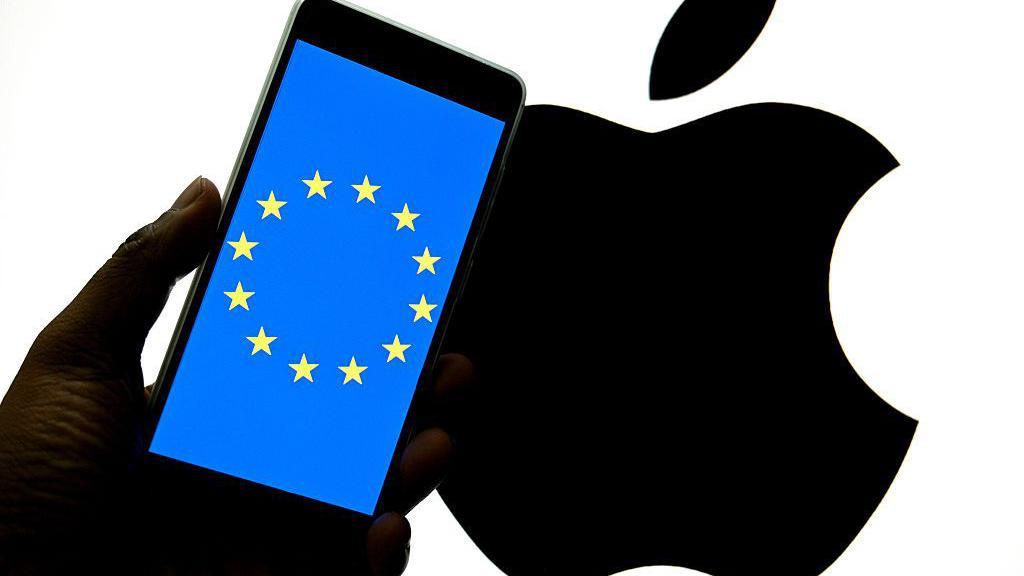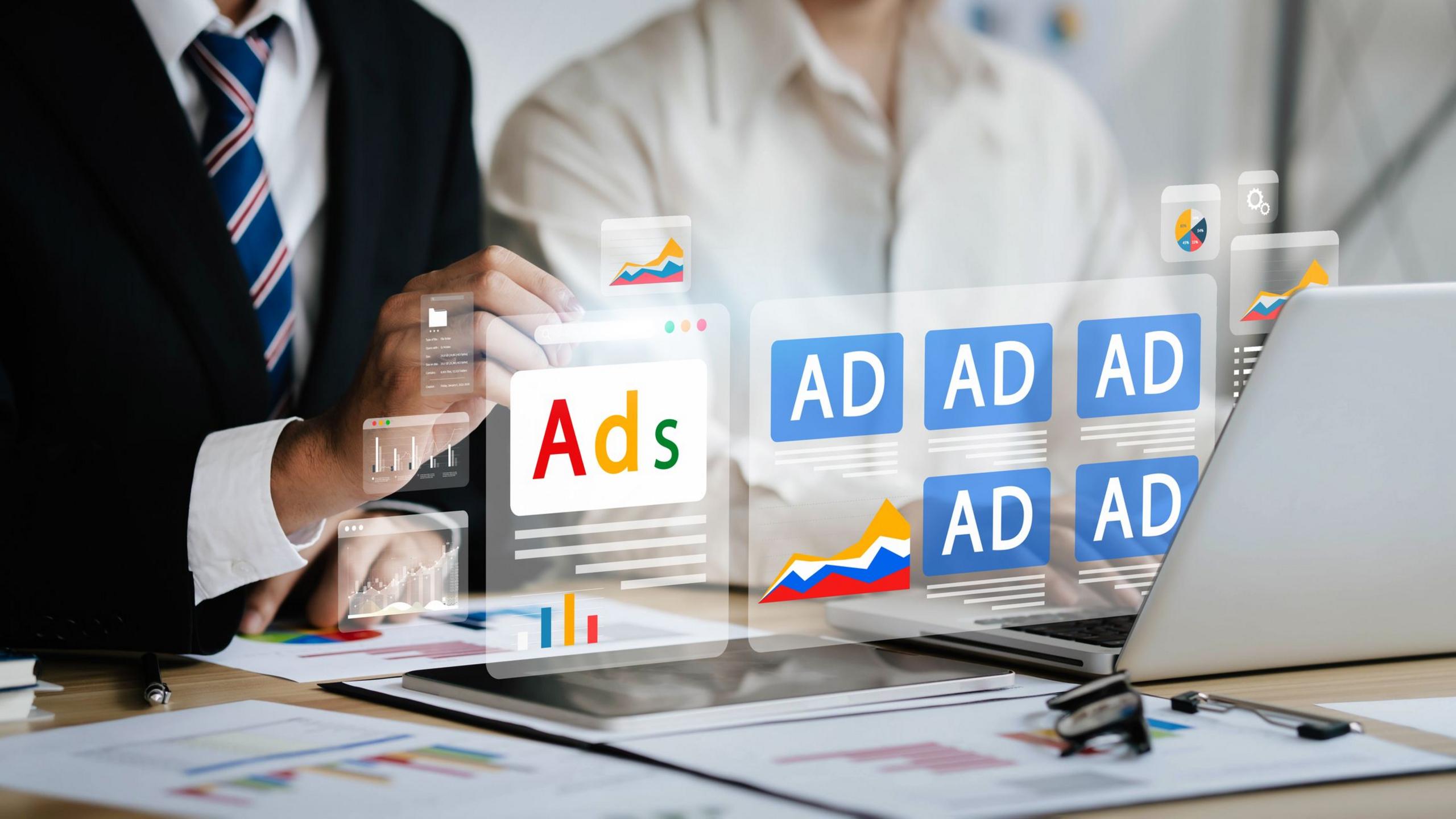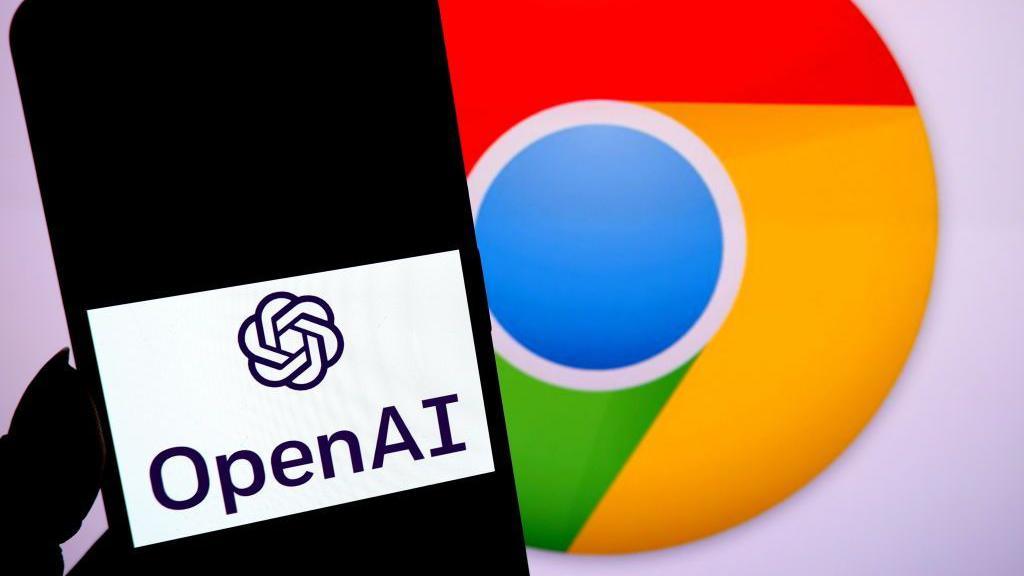Apple and Meta attack 'unfair' €700m EU fines

- Published
The European Union has ordered Apple and Meta to pay a combined €700m (£599m) in the first fines it has issued under legislation intended to curb the power of big tech.
It has issued a €500m (£428m) fine to Apple over its App Store, while Meta has been fined €200m (£171m) over how much choice users had to consent to data collection.
"We have a duty to protect the rights of citizens and innovative businesses in Europe," Commissioner Henna Virkkunen said in a statement.
The two tech firms have reacted angrily, with Meta accusing the EU of "attempting to handicap successful American businesses" and Apple saying it was being "unfairly targeted" and forced to "give away our technology for free."
The fines are lower than some of those issued by the EU in the past but - given the heightened economic tensions with America - still risk angering US President Donald Trump.
The US has levied a 10% tariff on imports from the EU, which Trump has accused of "taking advantage" of America.
EU spokesperson Arianna Podesta insisted the matters were "completely separate", telling the BBC: "This is about enforcement, it's not about trade negotiations."
The White House has been contacted for comment.
Data and apps
The European Commission - the EU's executive - started both investigations last year under a new law brought in to promote fairness in the tech sector called the Digital Markets Act (DMA).
The case against Apple was over its App Store.
The Commission says it must freely offer alternative app marketplaces to users and app developers - and says Apple was in breach of this.
Meanwhile, Meta's fine was over the choices it offered on data collection.
Meta introduced a "consent or pay" model, which meant users had to choose between allowing Meta to combine data it had collected on Facebook and Instagram, or paying a monthly subscription.
The Commission says this model did not allow users to freely consent to how their data was used.
In November, Meta introduced another option, which the Commission says "allegedly uses less personal data to display advertisements."
The Commission is currently assessing the new option.
In both cases, the Commission says the size of the fine takes into account "the gravity and duration of the non-compliance".
Both companies have 60 days to comply or risk further fines.
"Apple and Meta have fallen short of compliance with the DMA by implementing measures that reinforce the dependence of business users and consumers on their platforms," said Commissioner Teresa Ribera.
"As a result, we have taken firm but balanced enforcement action against both companies, based on clear and predictable rules."
Apple said the Commission had made "a series of decisions that are bad for the privacy and security of our users, bad for products, and force us to give away our technology for free."
It also accused the Commission of "[moving] the goal posts" during their meetings.
Meta said the ruling means Chinese and European companies are allowed to operate to different standards compared to American businesses.
"This isn't just about a fine; the Commission forcing us to change our business model effectively imposes a multi-billion-dollar tariff on Meta while requiring us to offer an inferior service," it said in a statement.
Epic dispute
The fines are relatively small given the tech companies' huge worldwide revenues - and are a fraction of Google's €2.4bn fine from last September.
But they are significant in the context of the current global economic situation.
In February, Donald Trump's White House issued a memorandum, external complaining about EU and UK regulation of American tech firms.
"Today's decisions are important in that they confirm that the European Commission will not back down," Anne Witt, professor of law at the EDHEC Business School in France, told the BBC.
Prof Witt said the disagreement was "not so much about substantive antitrust principles," given the US government is itself taking a number of big tech companies to court over alleged monopoly power.
They are more "about the fact that European institutions are telling US companies how to behave, even if these decisions are limited to have these companies behave on European soil," she added.
One company pleased with the ruling against Apple is Epic Games, the makers of Fortnite.
They had a long-running dispute over the distribution of their apps on Apple devices.
Epic Games chief executive Tim Sweeney said the ruling was "great news for app developers worldwide" in a thread on X., external
He urged the US to pass similar legislation which would allow developers to distribute their apps without using Apple's App Store, which charges fees for using its platform.
A US-based think tank, which is partly funded by big tech firms including Apple and Meta, came out against the decision.
The Information Technology and Innovation Foundation said the European Commission "has made clear that the DMA will be used to extract revenues from U.S. firms even as they continue striving to comply with its strictures."
"The Commission's actions today will not be well received by the Trump administration," it said.
The UK is also investigating big tech companies over alleged monopoly power, after a digital competition law was brought in last year focusing on companies with large market shares.
"Apple and Google's mobile ecosystems and Google's general search and search advertising services are currently being investigated for potentially having this status, and it is likely that other US tech giants and platforms will face similar investigations in the near future," said Andrew Maxwell, partner at law firm Freeths.
- Published23 August 2024

- Published23 April
